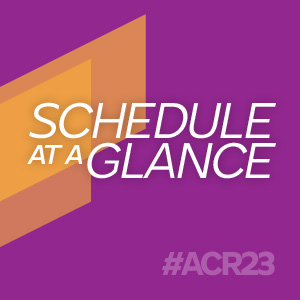Poster Session C
Epidemiology, health policy and outcomes
Session: (1796–1826) Epidemiology & Public Health Poster III
1813: Assessing Immunogenicity of SARS-CoV-2 Vaccine Neoantigen S1 in Autoimmune Rheumatic Disease Patients: A Study on Cellular and Humoral Responses
Tuesday, November 14, 2023
9:00 AM - 11:00 AM PT
Location: Poster Hall
- IP
Ines Perez Sancristobal, MD (she/her/hers)
Hospital Clinico San Carlos
Madrid, SpainDisclosure information not submitted.
Abstract Poster Presenter(s)
Inés Pérez Sancristóbal1, Maria Paula Alvarez Hernandez1, kauzar Mohamed Mohamed2, Maria Rodriguez Laguna1, Cristina Martinez3, Esther Toledano3, Dalifer Freites4, Benjamin Fernandez1, María Rodero3, Cecilia Bravo3, Antonia Rodrígez de la Peña5, Silvia Sanchez - Ramon5, Gloria mato Chain6 and Gloria Candelas1, 1Hospital Clinico San Carlos, Madrid, Spain, 2Department of Immunology, Hospital Clínico San Carlos, Madrid, Spain, 3Hospital Clinico San Carlos, Rheumatology Deparment, Madrid, Spain, 4Hospital Clínico San Carlos, Madrid, Spain, 5Department of Clinical Immunology, IML and IdSSC, Hospital Clínico San Carlos, Madrid, Spain, 6Department of Preventive Medicine, Hospital Clínico San Carlos, Madrid, Spain
Background/Purpose: Data on cellular and humoral immunogenicity triggered by SARS-CoV-2 vaccines in patients with autoimmune rheumatic diseases (ARD) are limited. While current vaccine efforts have focused on the induction of neutralizing antibodies against SARS-CoV-2, T-cell immunity may also provide protection against infection. Experimental data suggest that CD8+ T cell responses may have a protective role in the presence of decreasing or sub protective antibody titers.
The aim of this project is to describe the serological and T cell responses to the third dose of vaccine (either with BNT162b2 mRNA or ChAdOx1 nCoV-19 replication-deficient adenoviral vector vaccines) in a cohort of patients with ARD (rheumatoid arthritis and spondyloarthropathies) treated with biologic therapies, to describe the impact of these treatments on vaccine response in this patient population. As a second objective, we will describe the characteristics of patients who did not present an adequate immunogenic response.
Methods: Case-control study. We studied in 79 patients with ARD and in 31 healthy controls, anti-SARS-CoV-2 specific interferon-gamma (IFN-γ) production measured by IGRA between 8-12 weeks after the third dose of anti-SARS-CoV-2 vaccine. In addition, humoral response was measured by anti-S1 IgG antibody production measured by chemiluminescent microparticle immunoassay. Statistical comparison between categorical variables was performed by Fisher's or χ2 test. For quantitative variables by Kruskal-Wallis test or Mann-Whitney test.
Results: 79 patients with ARD (48 women, 31 men; mean age 58±11.4) 43 (54%), with rheumatoid arthritis and 36 (45.6%) with spondyloarthropathies. 32 (49.5%) of them were on glucocorticoid treatment (mean dose 4.92 mg/day), 25 (31.6%) on methotrexate and 56 (70.9%) on anti-TNF. Post-vaccination results showed positive T-cell immune responses in 68 of 79 (86.1%) ARD patients with mean IFN- γ anti-SARS-CoV-2 titers of 1,606.85 mUI/ml. 7 (8.9%) of ARD patients showed negative IFN-γ SARS-CoV-2 levels, while 4 (5%) had borderline titers. 100% of patients with previous COVID 19 disease had positive cellular responses. Within the group of negative or borderline cellular responses, 7 of 10 were men (70%), with no significant differences in terms of diagnosis, comorbidities or immunosuppressive treatments used. In the control group, 100% presented positive cellular responses. Anti-Spike IgG antibodies were detectable in all patients with ARD as in the control group.
Conclusion: Our preliminary data show that most patients with ARD were able to generate an adequate specific cellular response after vaccination against SARS-CoV-2, emphasizing the relevance of vaccination in this group. Specific antibody responses secondary to anti-SARS-CoV-2 vaccination were detected in all patients with ARD. Our data could support the relevance of these immune responses to personalize prevention, vaccination decision-making and treatment in this subgroup of patients.
.jpg)
I. Pérez Sancristóbal: None; M. Alvarez Hernandez: None; k. Mohamed Mohamed: None; M. Rodriguez Laguna: None; C. Martinez: None; E. Toledano: None; D. Freites: None; B. Fernandez: None; M. Rodero: None; C. Bravo: None; A. Rodrígez de la Peña: None; S. Sanchez - Ramon: None; G. mato Chain: None; G. Candelas: None.
Background/Purpose: Data on cellular and humoral immunogenicity triggered by SARS-CoV-2 vaccines in patients with autoimmune rheumatic diseases (ARD) are limited. While current vaccine efforts have focused on the induction of neutralizing antibodies against SARS-CoV-2, T-cell immunity may also provide protection against infection. Experimental data suggest that CD8+ T cell responses may have a protective role in the presence of decreasing or sub protective antibody titers.
The aim of this project is to describe the serological and T cell responses to the third dose of vaccine (either with BNT162b2 mRNA or ChAdOx1 nCoV-19 replication-deficient adenoviral vector vaccines) in a cohort of patients with ARD (rheumatoid arthritis and spondyloarthropathies) treated with biologic therapies, to describe the impact of these treatments on vaccine response in this patient population. As a second objective, we will describe the characteristics of patients who did not present an adequate immunogenic response.
Methods: Case-control study. We studied in 79 patients with ARD and in 31 healthy controls, anti-SARS-CoV-2 specific interferon-gamma (IFN-γ) production measured by IGRA between 8-12 weeks after the third dose of anti-SARS-CoV-2 vaccine. In addition, humoral response was measured by anti-S1 IgG antibody production measured by chemiluminescent microparticle immunoassay. Statistical comparison between categorical variables was performed by Fisher's or χ2 test. For quantitative variables by Kruskal-Wallis test or Mann-Whitney test.
Results: 79 patients with ARD (48 women, 31 men; mean age 58±11.4) 43 (54%), with rheumatoid arthritis and 36 (45.6%) with spondyloarthropathies. 32 (49.5%) of them were on glucocorticoid treatment (mean dose 4.92 mg/day), 25 (31.6%) on methotrexate and 56 (70.9%) on anti-TNF. Post-vaccination results showed positive T-cell immune responses in 68 of 79 (86.1%) ARD patients with mean IFN- γ anti-SARS-CoV-2 titers of 1,606.85 mUI/ml. 7 (8.9%) of ARD patients showed negative IFN-γ SARS-CoV-2 levels, while 4 (5%) had borderline titers. 100% of patients with previous COVID 19 disease had positive cellular responses. Within the group of negative or borderline cellular responses, 7 of 10 were men (70%), with no significant differences in terms of diagnosis, comorbidities or immunosuppressive treatments used. In the control group, 100% presented positive cellular responses. Anti-Spike IgG antibodies were detectable in all patients with ARD as in the control group.
Conclusion: Our preliminary data show that most patients with ARD were able to generate an adequate specific cellular response after vaccination against SARS-CoV-2, emphasizing the relevance of vaccination in this group. Specific antibody responses secondary to anti-SARS-CoV-2 vaccination were detected in all patients with ARD. Our data could support the relevance of these immune responses to personalize prevention, vaccination decision-making and treatment in this subgroup of patients.
.jpg)
I. Pérez Sancristóbal: None; M. Alvarez Hernandez: None; k. Mohamed Mohamed: None; M. Rodriguez Laguna: None; C. Martinez: None; E. Toledano: None; D. Freites: None; B. Fernandez: None; M. Rodero: None; C. Bravo: None; A. Rodrígez de la Peña: None; S. Sanchez - Ramon: None; G. mato Chain: None; G. Candelas: None.



